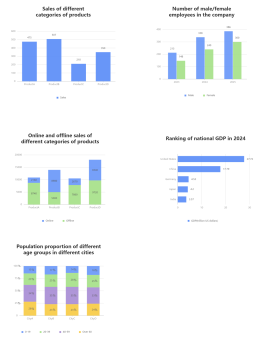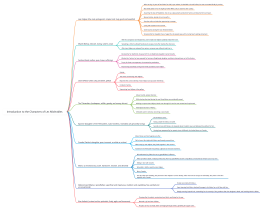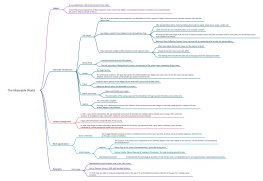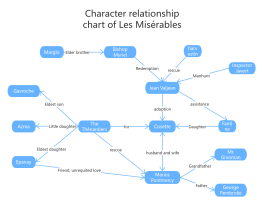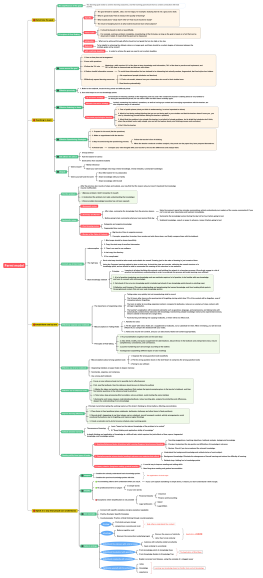Les Mis é rables Learning Notes
2024-09-26 10:58:21 183 0 Report 0
0
Login to view full content
This mind map serves as a comprehensive study guide for Victor Hugo's 'Les Misérables,' a cornerstone of 19th-century French literature. Hugo, celebrated as the 'Shakespeare of France,' masterfully blends realism and romanticism to craft a narrative rich in themes of love, redemption, and grace. Published in 1862, the novel spans nearly half a century, capturing the social fabric of France through vivid depictions of provincial towns, industrial cities, and Parisian slums. Central to the story is Jean Valjean, a tragic yet noble figure whose journey embodies the struggle of the oppressed against a backdrop of historical upheaval.
Other creations by the author
Outline/Content
Author Introduction
Victor Hugo (English name: Victor Hugo, February 26, 1802 - May 22, 1885), a representative writer of the early 19th-century French positive romanticism literature, a symbol of humanitarianism, and an outstanding bourgeois democratic writer in the history of French literature, known as the "Shakespeare of France." Throughout his life, he wrote numerous poems, novels, plays, various essays, literary criticism, and political articles, exerting a broad influence in France and around the world.
Work Influence
In terms of its richness, breadth, and complexity, Les Misérables undoubtedly stands at the forefront among Victor Hugo's vast array of literary works, and even within the literature of the 19th century, only Balzac's magnum opus, La Comédie Humaine, can rival it. For its substantial artistic volume, perhaps only through metaphors such as vast forests and expansive oceans can one provide a general concept.
Here, throughout nearly half a century of historical process, the vast panorama of social life unfolds: provincial remote towns, coastal emerging industrial towns, dreadful courts, dark prisons, the miserable slums of Paris, somber monasteries... Each scene in this long and grand tapestry is vividly alive, with details so true to life, and the figures so strikingly clear, the colors so rich and magnificent, the momentum so vast and grandiose, it stands as a paragon of the combination of realism and romanticism in the history of literature.
This is a magnificent scroll of history. The beginning of the painting can be traced back to the year 1793, during the climax of the French Revolution experienced by Bishop Bienvenu Myriel, and the end extends directly to the Parisian people's uprising of 1832, in which Marius took part.
The era of work
Published in 1862
Work Theme
A touching story about love, redemption, and grace.
Artistic Features
The theme of "Les Misérables" is the relentless struggle between humanity and evil. The human nature is inherently pure and good, and together we will move towards happiness, but this journey is fraught with suffering. The novel interweaves the backdrop of the French revolutionary turmoil of the time and the depiction of Napoleon's Battle of Waterloo, as well as many details of French society at the time. The novel unfolds a vast panorama of social life over nearly half a century: remote provincial towns, emerging industrial coastal cities, terrifying courts, dark prisons, the miserable slums of Paris, and gloomy monasteries... The details are vivid and precise, the images striking and prominent, the colors rich and magnificent, the scope grand and majestic, making it a paragon of the combination of realism and romanticism in literary history.
The protagonist of the novel, Jean Valjean, is not an abstract figure. In terms of origin, experiences, virtues, and habits, he is a laborer through and through. He embodies the various excellent qualities of the working people, representing those who are oppressed, harmed, and humiliated. His entire life and fate are imbued with a noble pathos, a pathos that carries social significance. This makes "Les Misérables" an epic of sorrow for the toiling masses struggling and fighting in a dark society.
Character Introduction
The Thénardiers
A typical lower-middle-class character, greedy, selfish, and despicable, yet quite amusing in personality,
The couple consistently oppress Cosette, but consistently dote on their daughter, Éponine.
The couple consistently oppress Cosette, but consistently dote on their daughter, Éponine.
Eponine
The daughter of the Thenardiers, likes Marius.
Cosette
Once humiliated in her early years, after being redeemed by Jean Valjean, she gradually felt the warmth of familial love. As she grew up, she began to yearn for love, met Marius and fell deeply in love with him; steadfast in her devotion to love.
Marius
A handsome and dashing man, who initially despised his father for being a Bonapartist, later came to understand the revolution and republicanism,
became a republican himself, his blood boiling with passion for his ideals, and his love unwaveringly loyal.
became a republican himself, his blood boiling with passion for his ideals, and his love unwaveringly loyal.
Sha Wei
A stubborn sheriff, representing the feudal and backward government.
Fantine
In pursuit of love, she worked as a seamstress, later cut off her beautiful hair to raise her daughter, and eventually became a prostitute, dying with regret.
Bishop Millet
A person of integrity, kindness, and deep compassion, it was his love and kindness that awakened the conscience of Jean Valjean.
Jean Valjean
A tragic protagonist, who experienced the life of a convict, still harbored kindness in his heart. He was redeemed by the benevolent actions of Bishop Myriel and thereafter consistently adhered to the goodness and justice within him, silently bearing all injustices and misunderstandings until he closed his eyes in death under the gaze of Marius and Cosette.
Classic Chapter
An honest person
Sometimes, to place one's hopes is to doom them.
The silent pack searches in the night.
Friends of ABC
A few pages of history
The greatness of disappointment
The war within the four walls
The final darkness, the sublime dawn.
Classic Quotes
Thought is the activity of wisdom, while fantasy is the activity of desire. To substitute fantasy for thought is akin to mistaking poison for food.
The only difference between the logic and philosophy of revolution is that its logic can lead to the conclusion of war, while its philosophy can achieve the result of peace.
Yearn for respect when faced with humiliation.
It is known that even the smallest drop of water can wear through stone, just as the human heart can be shaped by persistent effort. The hole worn through by drops will not disappear, nor can the accumulation in one's heart be erased.
Night, without stars, is pitch black, and in the darkness, there might be an angel standing with outstretched wings, waiting for this soul.

Collect
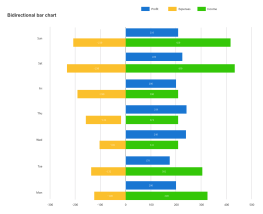
Collect
0 Comments
Next page
Recommended for you
More



